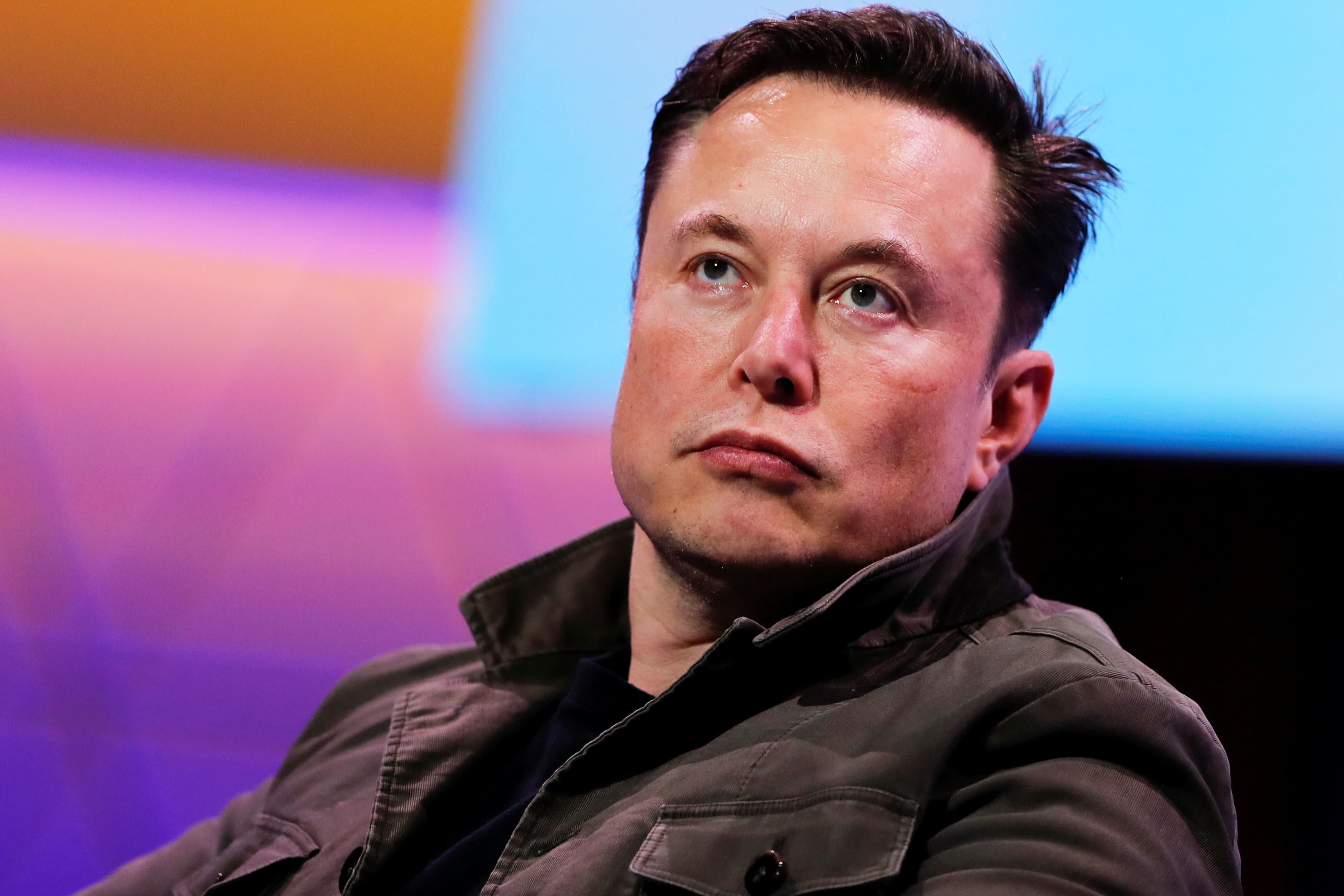Tesla did not talk about three important things on its triumphant Q3 earnings call

SpaceX owner and Tesla CEO Elon Musk gestures during a conversation at the E3 gaming convention in Los Angeles, June 13, 2019.
Mike Blake | Reuters
It improved production on the Model 3 from last year while cutting operating expenses, and turned a profit that surprised investors. It said it's ahead of schedule on its Shanghai factory and production of its Model Y crossover. The news sent its stock up almost 30% for the week.
But Tesla was silent or vague on three important matters: service, its Panasonic partnership, and precisely how the company improved its gross margins.
Service
On the last earnings call of 2018, CEO Elon Musk said that customer service would be a personal priority in 2019. But Tesla has not ramped up service locations to deal with the higher volume of cars it has been selling, and higher number of its cars that are aging in the field.
Last year, Tesla delivered 245,240 vehicles to customers. The year before it delivered just over 100,000 vehicles. The company is promising to deliver more than that -- at least 360,000 vehicles -- in 2019, and has already delivered around 255,000.
But Tesla stores and service centers now number 413, according to this week's quarterly update, a paltry 18% increase from a year ago.
Instead, Tesla has opted to invest in its mobile service fleet -- technicians who come to the customer's car to fix what they can, wherever it is parked. Its mobile service fleet has increased from 373 to 719 over the past year, a 93% bump, according to the Q3 update.
Those Tesla "rangers," as they were originally called, can't fix everything. Each mobile service technician needs to spend a good portion of their time in transit to the customer's car, as well. That means they can't complete as many jobs in a day as a team of technicians in a shop.
Many customers already have to wait days, if not weeks, to get their vehicles repaired by Tesla, according to numerous CNBC interviews with customers and widespread reports. And while they wait, only some get loaner Teslas -- others get rental car or ridesharing credits with services like Uber.
Failure to improve service could hurt Tesla's reputation, which suffered after Consumer Reports downgraded the reliability of the Model 3 in February. Customers willing to pay more than $40,000 for a compact SUV, like Tesla's forthcoming Model Y, will expect service to be readily available, without long drives or wait times.
Panasonic relationship
Tension between Tesla and its biggest partner, Panasonic, has ratcheted up in recent quarters.
Earlier this year, Musk blamed the Japanese battery cell supplier for missed goals and production woes, saying "It was physically impossible to make more Model 3's in Q1 due to cell constraints."
Soon thereafter, Panasonic and Tesla announced they would freeze their plans to expand battery-making capacity at their massive Gigafactory plant in Sparks, Nevada. In press interviews, Panasonic executives expressed hesitation about working with Tesla in any similar arrangement for their new Gigafactory in Shanghai.
Last quarter, Tesla acquired a battery tech firm called Maxwell. Then, Musk announced plans for a "battery day" to show investors how much of an edge his car company has on electric vehicle battery tech (it has not yet happened). Tesla's ambitions to make its own battery cells were revealed, along with a secret battery R&D lab, in June. And recently, Tesla acquired a Canadian battery manufacturing firm called Hibar.
By failing to discuss the Panasonic relationship on the Q3 call, Tesla left shareholders with very little visibility into whether or not it has secured the long-term supply of battery cells it expects to need to ramp up Model 3 production in Shanghai.
How it improved margins
Tesla set a personal best in the third quarter of 2019 by delivering more cars than it ever had before in a single period, but those cars had a lower average sales price than cars they sold in previous quarters. That helped push its automotive revenue down 12% year-over-year, and remain about flat versus the previous quarter.
Yet, Tesla was able to improve its automotive gross margins by a few points over the previous quarter, from 18.9% to 22.8%, which approaches the 25.8% automotive gross margins they achieved at the same time last year.
The company did not explain how it achieved this margin improvement, however.
On the earnings call, CFO Zachary Kirkhorn said revenue recognition from Tesla's Autopilot software upgrades, including the launch of a Smart Summon feature in the third quarter, contributed $30 million to its bottom line. There were also other "non-recurring items" that contributed to profitability, but the company didn't explain further.
Here's what Kirkhorn said about margins:
"We achieved these improvements through higher production volumes on S, X and Model 3, enabling better fixed cost absorption. We realized improvements in labor hours per vehicle as well as other costs, such as warehousing, logistics, delivery and import related items. We are also making continued progress reducing material costs, including commercial negotiations with suppliers."
Other details would help investors understand whether this quarter's margin improvement paves the way for sustained profitability. For example, what kind of deals did Tesla get from their suppliers? Were they rebates, or more lasting discounts? How did the auto maker lower material costs, are they changing vendors or deciding some components aren't necessary? And if Tesla needs "fewer labor hours per vehicle," does that mean it has finally mastered robotics and automation in its factories? And how will that impact headcount?
Tesla gave investors an ear full of good news in a third-quarter earnings call on Wednesday.
Some of these details may follow in the company's quarterly earnings filing with the SEC, which could drop any time.
WATCH: CNBC's full interview with Tesla Chairwoman Robyn Denholm
Read More
No comments